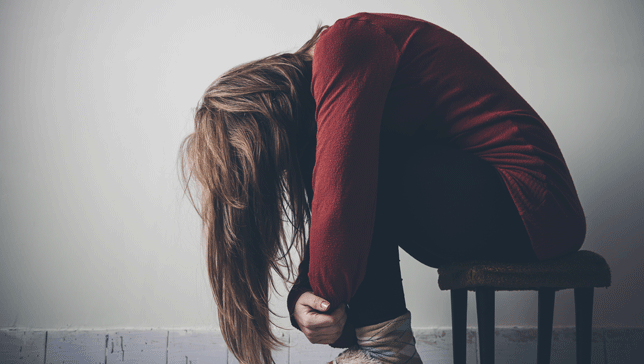Gender-based violence (GBV) is a sad reality and affects everyone and continues to – as victims, loved ones of victims, or as people living in a society where such violence creates a persistent insecure feeling.
Yet ironically, despite the frequency of violence, and years of raising awareness, many women still do not report or seek help, especially following any kind of sexual assault.
Many factors contribute to women’s reluctance to seek help or care following an assault.
Research conducted by Lisa Vetten, an independent gender policy expert based at Wits Institute for Social and Economic Research (WiSER), pointed out a number of service related factors that discourage women.
"The first challenge is that generally there isn't a service available, and the second challenge is once you get to the service, very often the quality of care depends on who runs it," says Vetten.
"Sometime you might get good service with well-trained women who really care. Sometimes you may get service where people are bored, they are cross, they are angry… sometimes you might be treated in ways that could make your trauma worse."
Southern Africa has strong legislative frameworks addressing GBV, which includes commitments to ensuring care and treatment services.
According to the Southern African Development Community (SADC) Gender Protocol 2014 Barometer, produced by Gender Links, "to date, 13 out of the 15 countries of SADC have implemented domestic violence and sexual assault legislation."
However, when it comes to implementation, the region is falling far short.
The report goes on to note "despite the targets set for 2015, SADC lawmakers have not made any further progress in passing legislation on domestic violence, sexual assault, sexual harassment and human trafficking, particularly in the last three years."
Khensani Mabasa, volunteer National Chairpersons at Treatment Action Centre (TAC) Giyani, in South Africa and HSSRC supervisor, is dissatisfied with the system and its lack of commitment to change.
"There is no commitment in the Ministry of Women in articulating the issue of GBV. There is no national plan addressing the issue of GBV. There is no policy ensuring women will be protected," says Mabasa.
She also stated that there is an urgent need to address implementation and link policy with local level action.
Another factor hindering women’s access to care is patriarchal societal customs that perpetuate and attempt to hide gender violence.
In many cases, women are afraid to speak out because they fear being blamed by society and family members. They also fear they will not get the help they need, and in the end will face added trauma.
In Giyani where Mabasa is based, many times women are referred back to traditional authorities. "When one reports a case they will refer the person back to their tribal authority first," Mabasa says.
"And most of the cases that are sensitive such as rape and physical assault, the perpetrators will be dealt with according to what the Indunas will say. Not according to how sensitive or big the charge is."
Many of these traditional authorities are steeped in customary beliefs that perpetuate inequality. "At times you find the woman is reporting to a person who maybe is the father or relative of the perpetrator.
In the end they will charge them with a fine or they will say go and sort it as a family," explains Mabasa.
Afraid of what the family will say if she seeks help elsewhere, Mabasa says many women are scared of how they will be labelled, of charges not even going to court, and perhaps even being charged by tribal authorities.
"There have been a number of women who were expelled for speaking out, and there are woman who were also assaulted by the police in terms of secondary victimisation," she explained.
Perhaps the most troubling, is that many do not report because they fear what their own family will say. "They are scared to report rape, they are scared to be victimised," says Nonhlanhla Skosana of Sonke Gender Justice.
"Firstly by their husband, boyfriends, and also the community. We need not just women, but also men to realize rape is real, and come out and talk about these issues"
To help break the silence and challenge negative practices, Sonke Gender Justice is teaming up with CMFD Productions to produce a radio drama to get people thinking and talking, slated to launch in February 2015.
The drama, called Ththuzeleka, helps create awareness about services, such as those offered by South Africa’s Thuthuzela Care Centres. But most importantly it aims to break the silence and promote support for survivors.
"Through drama we are addressing the sensitive issues of sexual violence, encouraging all people to support survivors, while also passing along practical information, such as what treatment is needed after an assault," says CMFD Productions director Deborah Walter.
"Listeners can talk about the characters, and relate what happens to their own experiences. In this way we are helping to break the silence in a way that respects everyone’s own comfort with disclosure."
Despite the many challenges, it is clear from Lisa Vetten’s research that women do need and want care after an assault, "In the immediate aftermath of rape, what women need is information, and practical assistance, such as their health care needs taken care of."
"It is an incredibly bad idea, and does harm, to be sitting and asking a woman how they feel, what happened to them and going to detail about the event," she adds.
"A couple of days or weeks later, it might be more appropriate to be doing so, and helping women with not just the practical impact, the psychological impact as well."
Follow Women24 on Twitter and like us on Facebook.




 Publications
Publications
 Partners
Partners















